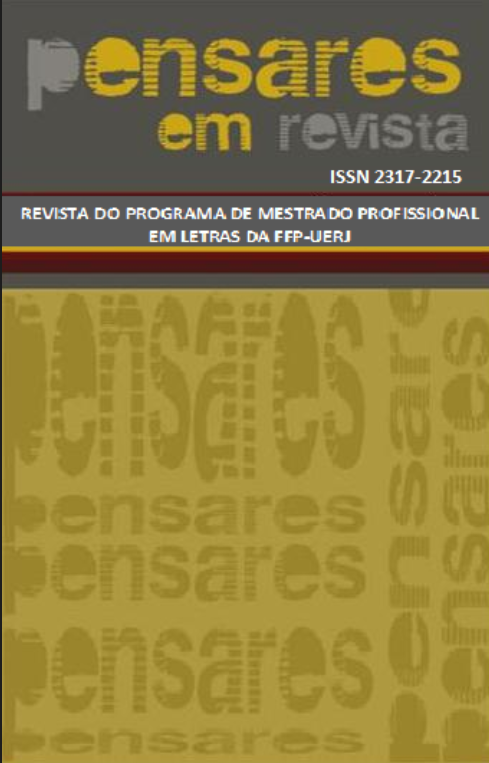THE WALKYRIA EFFECT: INSPIRING TRANSNATIONAL LANGUAGE TEACHER EDUCATION / O efeito Walkyria: inspirando a educação transnacional de professores de idiomas
DOI:
https://doi.org/10.12957/pr.2019.41188Parole chiave:
Duoethnography, Walkyria effect, Brazil/Canada collaborationAbstract
The three authors have many points of common interest and collaboration starting with their participation in the Novos Letramentos and Brazil-Canada Knowledge Exchange (BRCAKE) Projects, leading to a partnership agreement between their respective institutions (Glendon College, Universidade Estadual Mato Grosso do Sul). Walkyria Monte Mór has been an inspiring scholar, mentor and friend in the conceptualization and development of these projects. Utilizing a duoethnographic research approach (NORRIS & SAWYER, 2012; BREAULT, 2016) the authors explore Monte Mór’s scholarly and interpersonal contributions. In order to do so, the themes discussed in this paper are not based on pre-established objectives. From the dialogic and emergent perspective of duoethnography, discussions were constructed mainly based on the concept of subjectification and the authors’ impressions of the Walkyria effect. Emergent themes include the development of critical literacies informed by multimodality and translanguaging and applied to fields such as medical education and the teaching of Portuguese in Brazil, in which the alterity of English potentially introduces orientations to language teaching that support a more agentive notion of citizenship in language curricula and language teacher education. Regarding these potential developments, the authors discuss the current risks and strategic challenges for social justice education and critical literacies in contexts of political repression.Downloads
Pubblicato
Come citare
Fascicolo
Sezione
Licenza
Os Direitos Autorais dos artigos publicados Pensares em Revista pertencem ao(s) seu(s) respectivo(s) autor(es), com os direitos de primeira publicação cedidos à Pensares.
Os artigos publicados são de acesso público, de uso gratuito, com atribuição de autoria obrigatória de acordo com o modelo de licenciamento Creative Commons 4.0 adotado pela revista.
The Copyright of the published articles in Pensares Journal belong to the respective author(s), with the rights of first publication assigned to Pensares.
The published articles are of public access, free of charge, with attribution of obligatory authorship according to the Creative Commons 4.0 licensing model adopted by the journal.
A Pensares em Revista está licenciada com uma Licença Creative Commons Atribuição 4.0 Internacional.
Pensares Journal is licensed under a Creative Commons Attribution 4.0 International License (Creative Commons Atribuição 4.0 Internacional).


